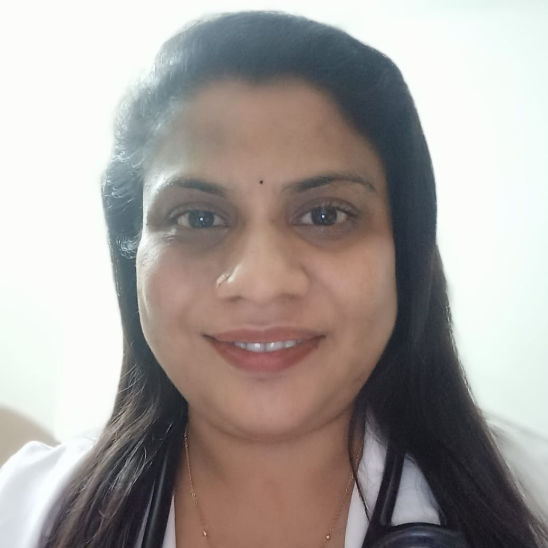Guide to Supporting Fathers In Their Health Journey
Explore practical tips and resources to support fathers in maintaining their physical, mental, and emotional well-being throughout life.

Written by Dr. Vasanthasree Nair
Reviewed by Dr. Shaik Abdul Kalam MD (Physician)
Last updated on 13th Jan, 2026

Introduction
A father’s health is often the silent backbone of a family's well-being, yet it's a journey frequently undertaken alone. Societal expectations have long dictated that men should be stoic, prioritizing providing for their family over caring for themselves. This can lead to neglected check-ups, unaddressed stress, and health issues that surface later in life. But a father’s health journey doesn't have to be a solitary path. This guide is designed for partners, children, and loved ones who want to become active allies in supporting the fathers in their lives. We’ll explore the unique health challenges and opportunities at each stage of fatherhood—from the sleepless nights of new parenthood to the golden years of retirement. By understanding this evolving journey and learning practical, empathetic strategies, you can help the dad you care about build a legacy of health that benefits everyone. Let’s reframe the narrative from silent struggle to supported wellness.
Why is a Father's Health a Family Affair?
A father's physical and mental well-being directly influences the entire family ecosystem. When a dad is healthy and happy, he has more energy to engage with his children, be a present partner, and model positive behaviors. Conversely, when his health declines, it creates stress and concern for everyone.
The Ripple Effect of a Father's Well-being
Studies have shown that children with involved, healthy fathers have better academic outcomes, higher self-esteem, and stronger social skills. For partners, a father’s engagement in his own health reduces the caregiver burden and fosters a more equitable relationship. Supporting his health isn’t just an act of love for him; it’s an investment in the family's collective future.
Breaking the "Strong and Silent" Stereotype
Many men are conditioned to avoid discussing health concerns, viewing them as a sign of weakness. This "strong and silent" stereotype is one of the biggest barriers to a healthy life. As a support system, your role is to help create a safe, judgment-free space where vulnerability is seen as strength. This means listening without immediately trying to "fix" the problem and validating his concerns.
Consult an General Physician
The Young Father (Ages 25-40): Building a Healthy Foundation
This stage is often a whirlwind of career-building, young children, and financial pressures. Health can easily take a backseat, making support crucial for establishing lifelong habits.
Supporting His Mental Load: New Parenthood and Career Stress
Long-Tail Keyword: mental health support for new fathers
Becoming a father is a monumental shift. Up to 10% of new fathers experience postpartum depression, yet it's rarely discussed. Support here means acknowledging the pressure. Instead of saying, "You should relax," try, "I can see you're stressed from work and the baby. Let me take the kids for an hour so you can have some quiet time." Encourage open conversations about anxiety and fatigue. If these feelings persist, gently suggest speaking with a professional. If symptoms of low mood or anxiety persist beyond two weeks, consult a doctor online with Apollo24|7 for further evaluation.
Making Time for Fitness and Nutrition as a Busy Dad
Long-Tail Keyword: healthy habits for busy dads
Gym time may become scarce. Instead of making fitness another source of guilt, integrate it into family life. Suggest a weekend family hike, a post-dinner walk, or "dance parties" with the kids. Nutritionally, you can support him by preparing healthy, grab-and-go snacks and meals together. Frame it as a team effort: "Let's both try to eat better so we have more energy for the kids."
The Mid-Life Father (Ages 40-60): Navigating Key Health Checkpoints
This decade is a critical window for preventive care. Metabolism slows, and the risk for chronic conditions like hypertension and diabetes increases.
Encouraging Proactive Health Screenings
Long-Tail Keyword: preventive health screenings for men over 50
Many men avoid doctors unless something is wrong. Your support can be the nudge he needs. Frame appointments as proactive maintenance, not a response to failure. Say, "Getting your blood pressure and cholesterol checked is like getting an oil change for your car—it keeps everything running smoothly." Offer to book the appointment and even go with him for moral support. Apollo24|7 offers a convenient home collection for tests like vitamin D or HbA1c, making it easier to stay on top of health.
Partnering in Heart Health and Weight Management
This is the time to be a health partner. Suggest cooking heart-healthy recipes together, like grilling fish instead of frying meat. Instead of focusing on "weight loss," focus on shared goals like "feeling more energetic" or "being able to keep up with the grandchildren." Physical activity can become a bonding experience—try cycling, swimming, or playing a sport together.
The Senior Father (Ages 60+): Focusing on Longevity and Quality of Life
The goal shifts from career achievement to maintaining independence, vitality, and social connection.
Supporting Mobility and Cognitive Health
Support his mobility by ensuring his environment is safe and encouraging activities like daily walking, tai chi, or gardening. For cognitive health, engage him in stimulating conversations, play strategy games, or encourage a new hobby. A diet rich in omega-3s and antioxidants also supports brain health.
The Importance of Social Connection and Purpose
Retirement can lead to a loss of identity and social isolation. Encourage him to join a club, volunteer, or take a class. Grandfathering can be a powerful source of purpose—facilitate time with grandchildren. Most importantly, include him in family decisions and seek his advice, showing his wisdom is valued.
Practical Strategies for Being an Effective Health Ally
Communication Tips: From Nagging to Supporting
The tone is everything. Avoid accusatory language like "You never exercise." Instead, use "I" statements: "I worry when you seem so tired. How can we work together to help you feel better?" Focus on shared goals and offer to participate, making it a "we" effort rather than a "you" problem.
Leading by Example: Making Health a Family Goal
The most powerful support is modeling the behavior you want to see. When you prioritize your own health, exercise regularly, and eat nutritiously, you make it a normal, valued part of family culture. This is far more effective than lecturing from the sidelines.
Conclusion
Supporting a father on his health journey is one of the most profound gifts you can give. It moves beyond simply reminding him to see a doctor and into the realm of genuine partnership. By understanding the unique challenges he faces at each stage of life—from the chaotic joy of young fatherhood to the reflective years of being a senior dad—you can offer empathy and practical help that truly makes a difference. Remember, the goal is not perfection, but consistent progress and open communication. It’s about building a family culture where health is a shared value and no one has to face their struggles alone. Start today by having a compassionate conversation and offering your support. The legacy of health you help him build will strengthen your family for years to come.
Consult an General Physician
Consult an General Physician

Dr. Siri Nallapu
General Practitioner
5 Years • MBBS
Hyderabad
Apollo 24|7 Clinic, Hyderabad

Dr. Rajib Ghose
General Physician/ Internal Medicine Specialist
25 Years • MBBS
East Midnapore
VIVEKANANDA SEBA SADAN, East Midnapore

Dr. Aakash Garg
Gastroenterology/gi Medicine Specialist
12 Years • MBBS, DNB (Medicine), DrNB (Gastroentrology).
Bilaspur
Apollo Hospitals Seepat Road, Bilaspur
(150+ Patients)

Dr. Sriya Mukherjee
General Practitioner
10 Years • MBBS
Kolkata
SEVA POLYCLINIC, Kolkata

Dr. Swaroopa Rani
General Physician/ Internal Medicine Specialist
9 Years • MBBS, MD (Internal Medicine)
Bengaluru
Apollo Medical Center, Marathahalli, Bengaluru



